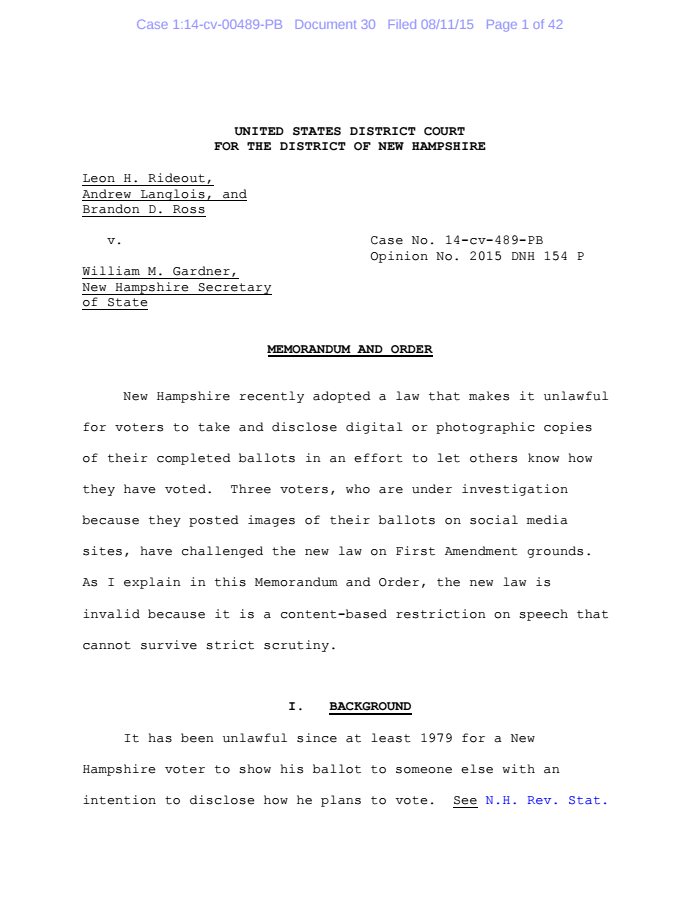A federal court on Tuesday struck down a New Hampshire law banning so-called "ballot selfies" because it violated free speech rights.
The ruling comes after the ACLU of New Hampshire filed a lawsuit in 2014 on behalf of three voters, including a member of the state’s House of Representatives, challenging the law.
The law, which went into effect Sept. 1, 2014, made it illegal for a person display a picture of a marked ballot, including on Twitter, Facebook, or Instagram. The state argued that the practice could lead to vote buying or coercion.
One of the plaintiffs, Andrew Langlois, posted a photo of his marked ballot on Facebook after he voted during the September 2014 primaries. He had written-in the name of his recently deceased dog, Akira, as his Republican choice for U.S. Senate because he was unsatisfied with the candidates, the complaint stated.
Langlois and the two other plaintiffs — Brandon Ross and New Hampshire state Rep. Leon Rideout, a Republican — were being investigated by the attorney general’s office for posting photos of their ballots when the complaint was filed. Violating the law carried a fine of up to $1,000.
In its 42-page ruling, the U.S. District Court for the District of New Hampshire said the law was overly broad and that the secretary of state failed to demonstrate that less speech-restrictive alternatives would be ineffective in stopping vote buying or coercion.
“It recognizes the importance of digital speech in the 21st century,” Gilles Bissonnette, legal director for the ACLU of New Hampshire, told BuzzFeed News of the ruling.
The ruling is unique, Bissonnette added, because New Hampshire was the only state to update election laws with the specific intent of banning photos from online forums.
Other states have similar laws that could be interpreted to ban ballot selfies, but they were put on the books before social media took hold, Bissonnette said.
The ruling on Tuesday “struck down a state effort to explicitly ban this form of innocent political speech,” Bissonnette said. “Even if their concerns were compelling, the law was fundamentally over broad and swept within its scope innocent political speech.”
New Hampshire Secretary of State William M. Gardner did not immediately return a request for comment.

